News
Corruption stifles economic recovery – civil society groups
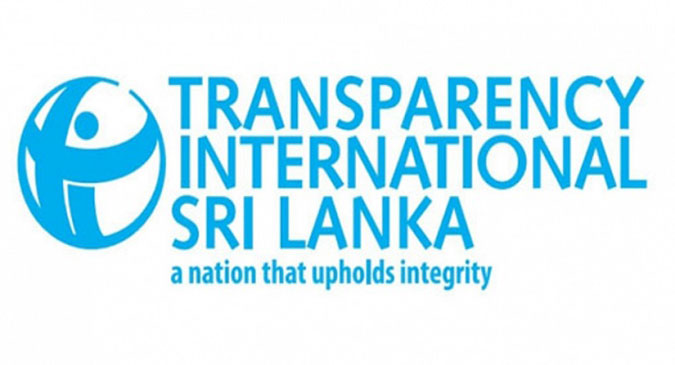
The ‘Civil Society Initiative on Anti-Corruption Reform for Economic Recovery,’ led by Transparency International Sri Lanka (TISL) and comprising Verité Research, Centre for Policy Alternatives (CPA), Sarvodaya Shramadana Movement, People’s Action for Free and Fair Elections (PAFFREL), and National Peace Council (NPC) yesterday said that there was an urgent need for political will and genuine action towards anti-corruption governance reforms that are essential for sustainable economic recovery.
In a statement titled ‘Anti-Corruption Governance Reforms Are Critical for Economic Recovery’ the TISL said: On this International Anti-Corruption Day, we reiterate the urgent need for political will and genuine action towards anti-corruption governance reforms that are essential for sustainable economic recovery.
We note the critical juncture the country is facing, where decisive action is expected by the citizens to spearhead the ‘system change’ that was the unified call of the unprecedented people’s movement last year. We also note the clear call by the international development partners, notably the International Monetary Fund (IMF) to initiate governance reforms that are essential to reach the economic recovery targets in the agreement. The recently published Governance Diagnostic Report of the IMF, as well as the Civil Society Governance Diagnostic Report on the Corruption Landscape of Sri Lanka underscore the imperative for comprehensive anti-corruption governance reforms, in order to combat the economic crisis rooted in weak governance and entrenched corruption.
Therefore, the ‘Civil Society Initiative on Anti-Corruption Reform for Economic Recovery,’ led by TISL and comprising Verité Research, CPA), Sarvodaya Shramadana Movement, PAFFREL, and NPC, makes an earnest call from the policymakers, as well as the citizenry to not let this unique “reform moment” slip away.
As we observe the International Anti-Corruption Day under the theme “UNCAC at 20: Uniting the World Against Corruption,” marking the 20th anniversary of the adoption of the United Nations Convention against Corruption (UNCAC), we emphasize that the governance reforms identified by the civil society and the IMF must be prioritized and implemented, if we are to recover and restore the economy.
Nadishani Perera, Executive Director of TISL, stated, “The recent landmark decision of the Supreme Court has confirmed our assertion that the economic crisis was caused by a governance failure. The court has emphasized that the crisis could have been averted if high-level decision-makers had acted in the best interest of the country, upholding the public trust that is bestowed upon policy makers who are duty bound to act as the trustees of public resources. Corruption and poor governance in Sri Lanka steal away relief and development funds and prevent the funds from reaching those that are most in need. This must be stopped at this critical time in order to uplift the lives of citizens, who are the actual casualties of this man-made crisis.”
The unfolding of the economic crisis and the people’s uprising seeking accountability and systems change demonstrated the serious breakdown of public trust towards those in governance. It is paramount for the Government to earn back the public trust if it is to successfully implement any of the economic reforms. Towards this, it is essential for the Government to demonstrate its commitment to change through concrete actions of reform and by taking actions to end the startling levels of impunity for large scale corruption and abuse of power at the top levels prevailing in the country.
Any institutions that are set up to combat corruption must consist of persons with integrity, appointed through an independent process which is respected and not undermined and those appointed should be enabled to act with independence and without fear of repercussions.
A conducive environment for civic engagement where people are able to access information and freely express their opinion including their dissent is vital for meaningful economic recovery. However, the government’s conduct of violently suppressing public expression, intimidating and harassing those who dissent, disrespecting the separation of powers between the executive, legislature and the judiciary and attempting to introduce oppressive laws that curtail these freedoms, have been extremely harmful towards any sort of civic engagement.
Therefore, we urge the President and Government to demonstrate their commitment towards transparent and accountable governance and equitable and sustainable economic recovery by going beyond mere words and promises to actual implementation of the governance reforms specified in the governance diagnostics, while protecting the Constitutionally guaranteed democratic rights and civic space.
We also call on all public representatives in Parliament to go beyond lip service and demonstrate their commitment to real system change through their actions. We request the international lenders and donors to maintain pressure towards governance reforms in order to ensure that their funds will fulfill the purposes for which they are granted. We call upon the public to demand for governance and anti-corruption reforms as a non-negotiable deliverable towards economic recovery.
Latest News
486 dead, 341 missing, 171,778 displaced as at 0600hrs today [05]

The situation report issued by the Disaster Management Center at 0600hrs today [5th December] confirms that 486 persons have died and another 341 persons are missing after the devastating weather conditions in the past week.
171,778 persons have been displaced and have taken refuge at 1,231 safety centers established by the government.

News
Media slams govt.’s bid to use Emergency to silence critics

Media organisations have denounced Deputy Minister of Public Security and Parliamentary Affairs Sunil Watagala after he urged law enforcement authorities to use emergency regulations to take action against those posting allegedly defamatory content about the President and senior ministers on social media.
The Sri Lanka Working Journalists Association (SLWJA) yesterday issued a strongly worded statement condemning Watagala’s remarks, warning that they posed a direct threat to freedom of expression and media rights, particularly at a time when the country is struggling through a national disaster.
Watagala made the controversial comments on 2 December during a meeting at the Malabe Divisional Secretariat attended by government officials and Deputy Media Minister Dr. Kaushalya Ariyarathna. During the discussion, the Deputy Minister claimed that a coordinated effort was underway to spread distorted or false information about the disaster situation through physical means, social media, and even AI-generated content. He also alleged that individuals based overseas were contributing to such activity.
According to the SLWJA, Watagala went further, directing police officers present at the meeting to treat those posting such content “not merely as suspects but as offenders” and to take action against them under emergency regulations currently in force.
The SLWJA accused the government of abandoning the democratic principles it once campaigned on, noting that individuals who publicly championed free speech in the past were now attempting to clamp down on it. The association said this was not an isolated incident but part of a pattern of growing state pressure on journalists and media platforms over the past year.
It warned that attempts to criminalise commentary through emergency powers especially during a disaster constituted a grave violation of constitutional rights. The union urged the government to respect democratic freedoms and refrain from using disaster-related powers to silence criticism.
In a separate statement, Internet Media Action (IMA) also expressed “strong objection” to Watagala’s comments, describing them as a “serious threat to freedom of expression”, which it said is a fundamental right guaranteed to all Sri Lankan citizens.
The IMA said Watagala’s assertion that “malicious character assassination attacks” were being carried out against the President and others through social media or other media channels, and that such acts should attract severe punishment under emergency law, represented “an abuse of power”. The organisation also criticised the Deputy Minister’s claim that false opinions or misrepresentations whether physical, online, or generated by AI could not be permitted.
Using emergency regulations imposed for disaster management to suppress political criticism amounted to “theft of fundamental rights”, the statement said, adding that the move was aimed at deliberately restricting dissent and instilling fear among social media users.
“Criticism is not a crime,” the IMA said, warning that such rhetoric could lead to widespread intimidation and self-censorship among digital activists and ordinary citizens.
The group demanded that Watagala withdraw his statement unconditionally and insisted that freedom of expression cannot be curtailed under emergency laws or any other legal framework. It also called on the government to clarify its stance on the protection of fundamental rights amid increasing concerns from civil society.
News
Cardinal calls for compassionate Christmas amid crisis

Archbishop of Colombo, Cardinal Malcolm Ranjith, has called on Sri Lankans to observe this Christmas with compassion and restraint, as the nation continues to recover from one of its worst natural disasters in recent memory.
In his message, the Colombo Archbishop has highlighted the scale of the crisis, noting that more than 1.5 million people have been displaced, while an “uncounted number” remain buried under debris in the hill country following landslides and severe flooding.
“It is a most painful situation,”
he has written acknowledging the difficulty of celebrating a season traditionally associated with joy while thousands are mourning lost loved ones, living in refugee centres, or left with nothing but the clothes they were wearing.
The Cardinal has urged the faithful to temper excessive celebrations and extravagance, instead focusing on helping those affected. “Celebrate, by all means, yes, but make it a moment of spiritual happiness and concern for the needs of those who suffer,” he said. “Assist as much as possible those who lost their loved ones, their homes, and their belongings.”
He has called for a Christmas marked by love, sharing, and solidarity, describing it as an opportunity to make the season “a deeply spiritual and joyful experience.”
-
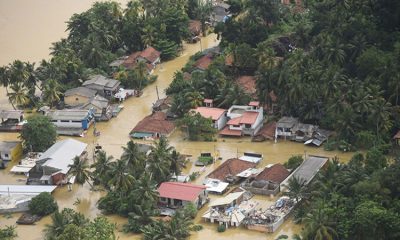
 News5 days ago
News5 days agoWeather disasters: Sri Lanka flooded by policy blunders, weak enforcement and environmental crime – Climate Expert
-
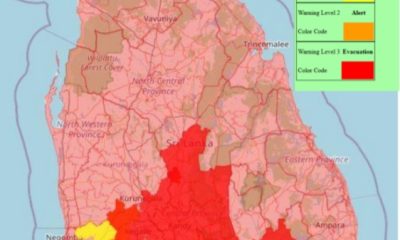
 Latest News6 days ago
Latest News6 days agoLevel I landslide RED warnings issued to the districts of Badulla, Colombo, Gampaha, Kalutara, Kandy, Kegalle, Kurnegala, Natale, Monaragala, Nuwara Eliya and Ratnapura
-
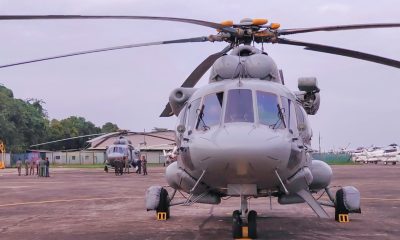
 Latest News6 days ago
Latest News6 days agoINS VIKRANT deploys helicopters for disaster relief operations
-
News2 days ago
Lunuwila tragedy not caused by those videoing Bell 212: SLAF
-

 Latest News6 days ago
Latest News6 days agoDepartment of Irrigation issues Critical flood warning to the Kelani river basin
-

 Latest News4 days ago
Latest News4 days agoLevel III landslide early warnings issued to the districts of Badulla, Kandy, Kegalle, Kurunegala, Matale and Nuwara-Eliya
-
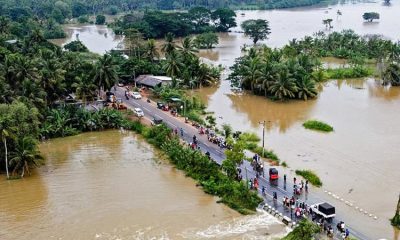
 News6 days ago
News6 days agoCountry reels under worst weather in living memory
-

 Editorial6 days ago
Editorial6 days agoNeeded: Action not rhetoric













